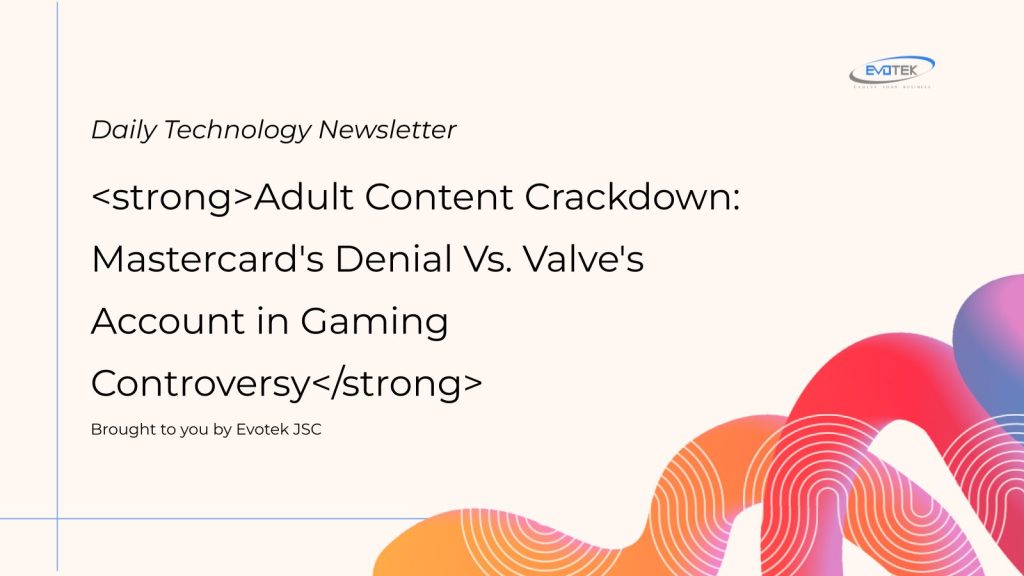The gaming industry is grappling with a significant controversy following a widespread crackdown on adult-themed content across various digital marketplaces. This surge in content removal, widely attributed to pressure from payment processors, has now drawn a public response from financial giant Mastercard, which recently issued a statement refuting claims of direct intervention.
In its official statement, Mastercard asserted, “Mastercard has not evaluated any game or required restrictions of any activity on game creator sites and platforms, contrary to media reports and allegations.” However, the company also clarified its broader policy, stating, “At the same time, we require merchants to have appropriate controls to ensure Mastercard cards cannot be used for unlawful purchases, including illegal adult content.” This dual message aims to balance a denial of specific pressure with a reaffirmation of general compliance requirements.
Pressure from Advocacy and Platforms’ Response
The controversy was initially fueled by an open letter from the advocacy group Collective Shout, which urged major financial entities like PayPal, Mastercard, and Visa to address the availability of games depicting highly sensitive and illegal content. In the wake of this appeal, prominent digital storefronts reacted swiftly.
Steam, Valve’s popular gaming platform, declared it would prohibit games failing to comply with its “payment processors and related card networks and banks” regulations. Similarly, Itch.io, another notable marketplace, began removing adult content from its public browse and search functions while undertaking a comprehensive content audit.
Valve’s Counter-Narrative
Despite Mastercard’s attempt to distance itself from direct pressure, Valve, the company behind Steam, presented a conflicting account to gaming news outlets. Valve stated that “Mastercard did not communicate with Valve directly, despite our request to do so.”
Instead, Mastercard reportedly engaged with payment processors and their associated acquiring banks. These processors then relayed the directives to Valve. Valve responded by reiterating its long-standing policy, established in 2018, of distributing only legally permissible games. However, Valve’s explanation was “rejected” by the payment processors, who cited the “risk to the Mastercard brand” and referenced a Mastercard guideline prohibiting “illegal or brand-damaging transactions.” This suggests an indirect but undeniable influence on content policies within the gaming sector.
Itch.io’s Ongoing Negotiations
Itch.io continues to navigate these complex waters, announcing efforts to re-index certain free adult-oriented games while actively negotiating with various payment processors, including Stripe. Stripe, a key financial partner, has explicitly stated its inability to “support sexually explicit content” due to restrictions imposed by its own “banking partners.” This highlights the cascading effect of financial regulations and brand reputation concerns through the payment ecosystem, significantly impacting how digital content platforms manage their offerings.

 日本語
日本語 한국어
한국어 Tiếng Việt
Tiếng Việt 简体中文
简体中文